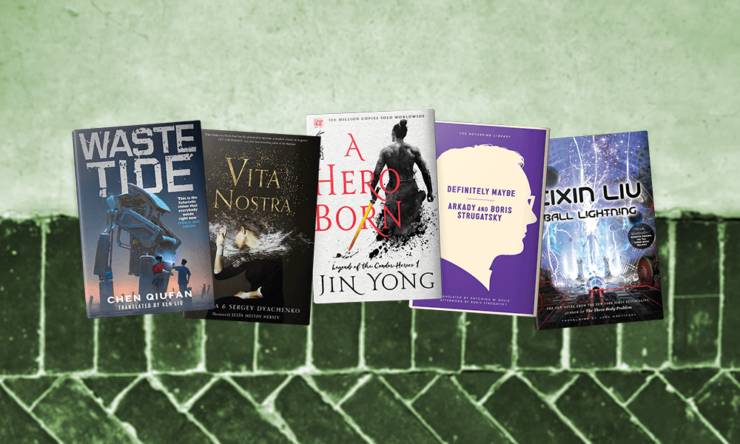Earlier this year, I resolved to start reading more science fiction and fantasy written in non-English languages. There’s something unsettling about reading a novel in a different language–the writing uses different frames of reference, metaphors, and colloquialisms, and the characters seem to move through and think about the world in entirely different ways.
I also began translating from Chinese to English professionally a couple of months ago. Though I had taken academic courses on translation, I hadn’t quite been prepared for the many complexities involved in turning a Chinese science fiction story into an equally good reading experience for English-reading audiences. Thanks to Ken Liu’s very patient mentorship, I’ve learned a million things about voice, word choice, rhythm, and substitution that I already employ largely unconsciously in writing my own fiction, but only thought about deliberately when I switched to translation.
My takeaway from all of this is that translation is magical.
I think Johann Christoph Gottsched best describes what the practice of translation does for a writer: “Translation is precisely what the copying of a given model is to a beginner in the art of painting…While they copy the design and the nuances and the full painting, they observe with great acumen every detail of the original artist’s art and skill, the sum total of their example’s beauty and perfection. They also make up a hundred little rules for themselves while they are working. They commit to memory a hundred technical tricks and advantages that are not immediately known to all, and that they would have never discovered by themselves.”
Translation is difficult and miraculous. I’m certainly a better writer now as a result of my translation; I think I’m a better thinker as a result of reading more translated works. And translation is hard–incredibly, unexpectedly hard–while translators themselves are underrated. Here, then, are five SFF novels in translation that I just adore.
Vita Nostra by Sergey and Marina Dyachenko, translated by Julia Hersey
Vita Nostra is like Harry Potter meets The Magicians in a rural Russian technical school, with the existential dread and brain breaking that (for me) accompanies grad school life. It’s the type of book that left me exhausted after reading, in the best of ways. Through a series of bizarre and complicated tasks like swimming every morning in the freezing cold ocean, Sasha Samokhina gains entrance to the Institute of Special Technologies. But this is no Hogwarts, where magic is fun and exciting; Sasha’s coursework is mind-numbingly difficult, her instructors harsh and demanding, her accommodations spartan, and her cohort cruel. What’s more, Sasha can’t just leave–her instructors insinuate time and time again that if she quits on her studies, her mother will suffer the consequences. Is it all worth it? I’ve read Vita Nostra twice now, and I’m still not sure. Julia Hersey has done an incredible job of rendering this deeply complex story into smooth, fluid English.
Buy the Book
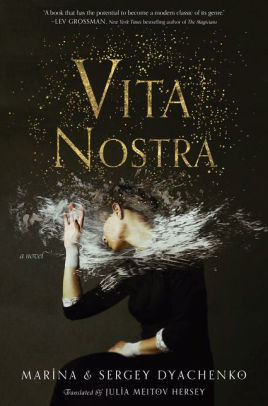

Vita Nostra
Ball Lightning by Cixin Liu, translated by Joel Martinsen
Sci-fi fans should be familiar with the name Cixin Liu from his Three Body trilogy, starting with the Hugo-award winning novel The Three Body Problem. The Chinese edition of Ball Lightning actually came out in 2004, before any of the Three Body trilogy novels were published, but its English translation only came out last year. (The translator Joel Martinsen also translated the middle volume of the Three Body trilogy, The Dark Forest, which is one of my favorite novels of all time.) Ball Lightning isn’t quite a prequel to the Three Body trilogy, though it shares a few of the same characters (notably Ding Yi!) and purportedly takes place in the same world. No aliens here–Ball Lightning is a thoroughly human story about obsession, curiosity, and mysteries of the natural world. Its opening premise–a young man is driven to discover the roots of ball lightning phenomena after it kills its parents–is fascinating enough. But Ball Lightning, like the Three Body trilogy, digs further into questions about the nature of existence and death.
Buy the Book
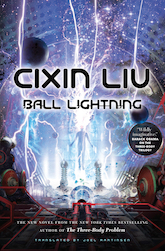

Ball Lightning
Definitely Maybe by Arkady and Boris Strugatsky, translated by Antonina W. Bouis
The Strugatsky brothers were Soviet era science fiction writers whose work has been around for quite a while, but I picked up my first Strugatsky novel just last year. Definitely Maybe instantly grips with its description of Dmitri Malianov, a scientist on the verge of a Nobel Prize-level breakthrough, who suddenly finds himself beset with endless odd distractions–the delivery of a case of vodka, the arrival of a sexy woman, mysterious telephone calls, and knocks on his door. Soon Malianov makes contact with other scientists who have suffered the same problem. I won’t spoil what’s going on–only that the book asks questions about knowledge, authority, and scientific responsibility. It’s written in a minimalist, slightly off-kilter way that leaves the reader feeling constantly unsettled. It’s a bit like watching an episode of the Twilight Zone. To be quite honest, such befuddling books aren’t normally my cup of tea, but Definitely Maybe is short enough to take it all in in one sitting.
Buy the Book
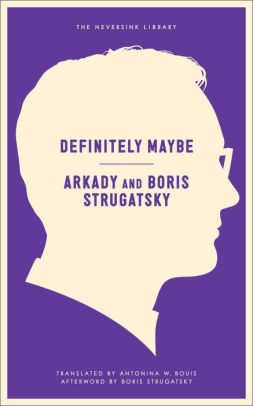

Definitely Maybe
A Hero Born by Jin Yong, translated by Anna Holmwood
Anyone even vaguely familiar with Chinese pop culture will recognize the name of Jin Yong (the pen name of Louis Cha), arguable the most widely read and beloved author in China–think name recognition on the scale of J.K. Rowling and J.R.R. Tolkein. He made popular the epic fantasy wuxia genre (think heroes, martial arts, swords, sweeping mountainsides), in which he constructed sprawling worlds that have since been adapted to every format imaginable. I was first introduced to Jin Yong’s work when I was studying in Beijing the summer after my freshman year and became addicted to the 2007 adaptation of Tianlongbabu (Demi-Gods and Semi-Devils), which majorly influenced the aesthetics of The Poppy War. Jin Yong hasn’t quite caught on with western readers yet, in part due to the lack of good translations. Anna Holmood’s recent translation of A Hero Born promises to change that.
Buy the Book
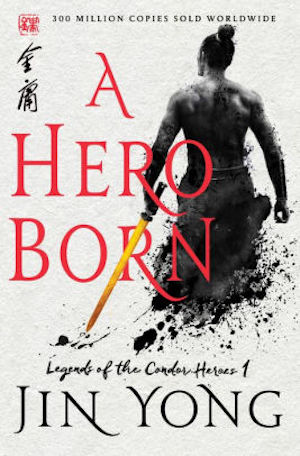

A Hero Born
Waste Tide by Chen Qiufan, translated by Ken Liu
Waste Tide is the only book on this list that I haven’t yet read. Which isn’t to say I’m not familiar with the author–I’m a big fan of Chen Qiufan’s science fiction short stories, and my first professional translation is his story “In This Moment, We Are Happy” (out soon in Clarkesworld!), which examines very difficult ethical questions surrounding childbirth and motherhood at the intersection of current advances in medical technology. I admire greatly the way his work asks difficult, cutting-edge, and often disturbing questions about science and human nature. Waste Tide, about a migrant waste worker named Mimi who lives and works on an island of trash, promises exactly that. Also, I’ll read anything translated by Ken Liu, who rendered the Cixin Liu’s The Three Body Problem with brilliant precision and poetry.
Buy the Book
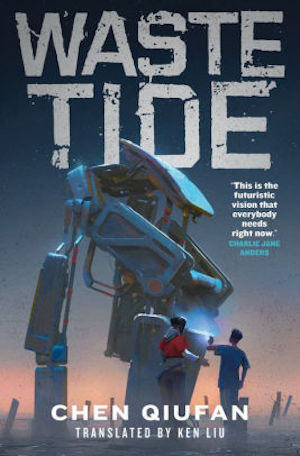

Waste Tide










